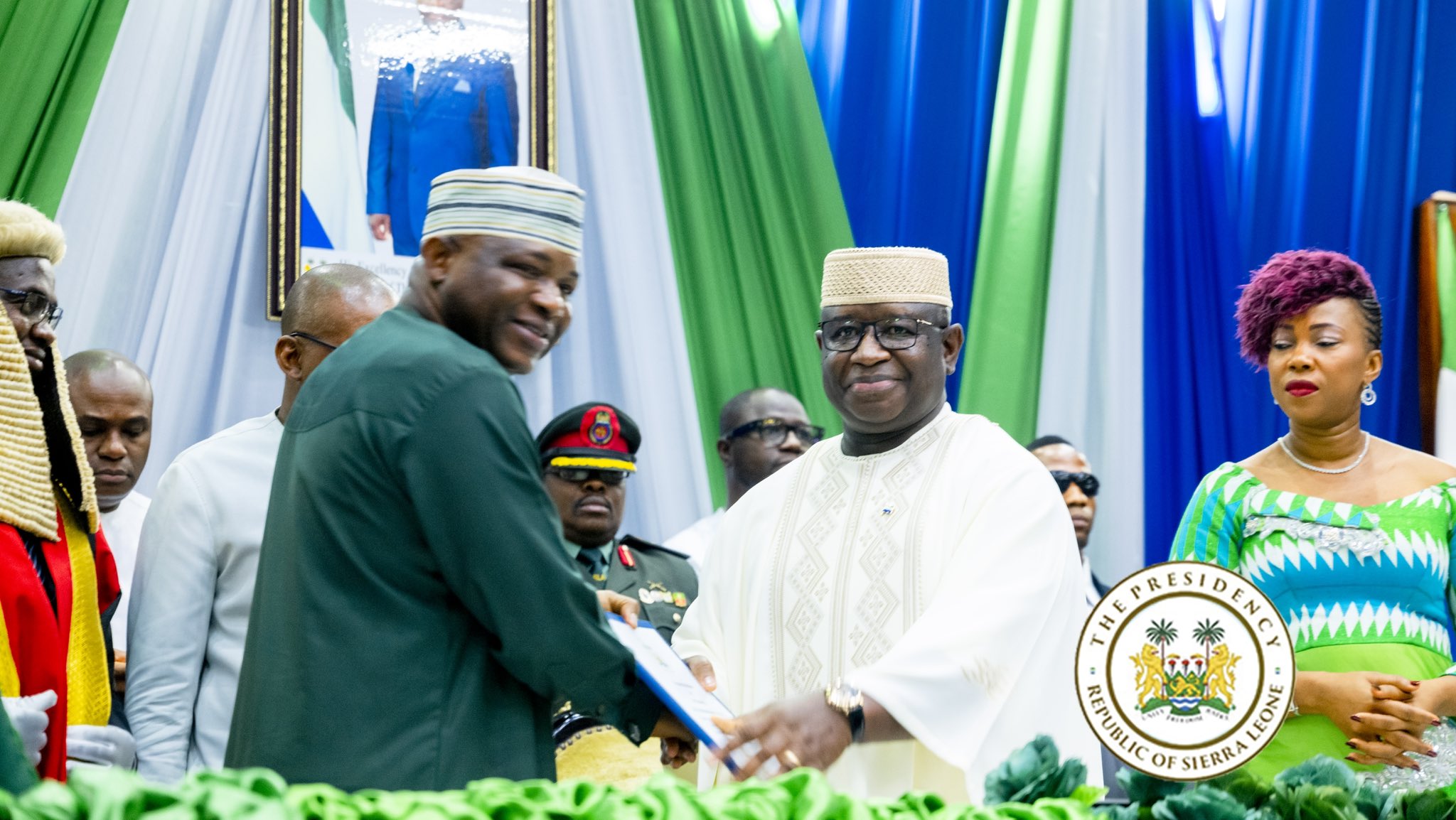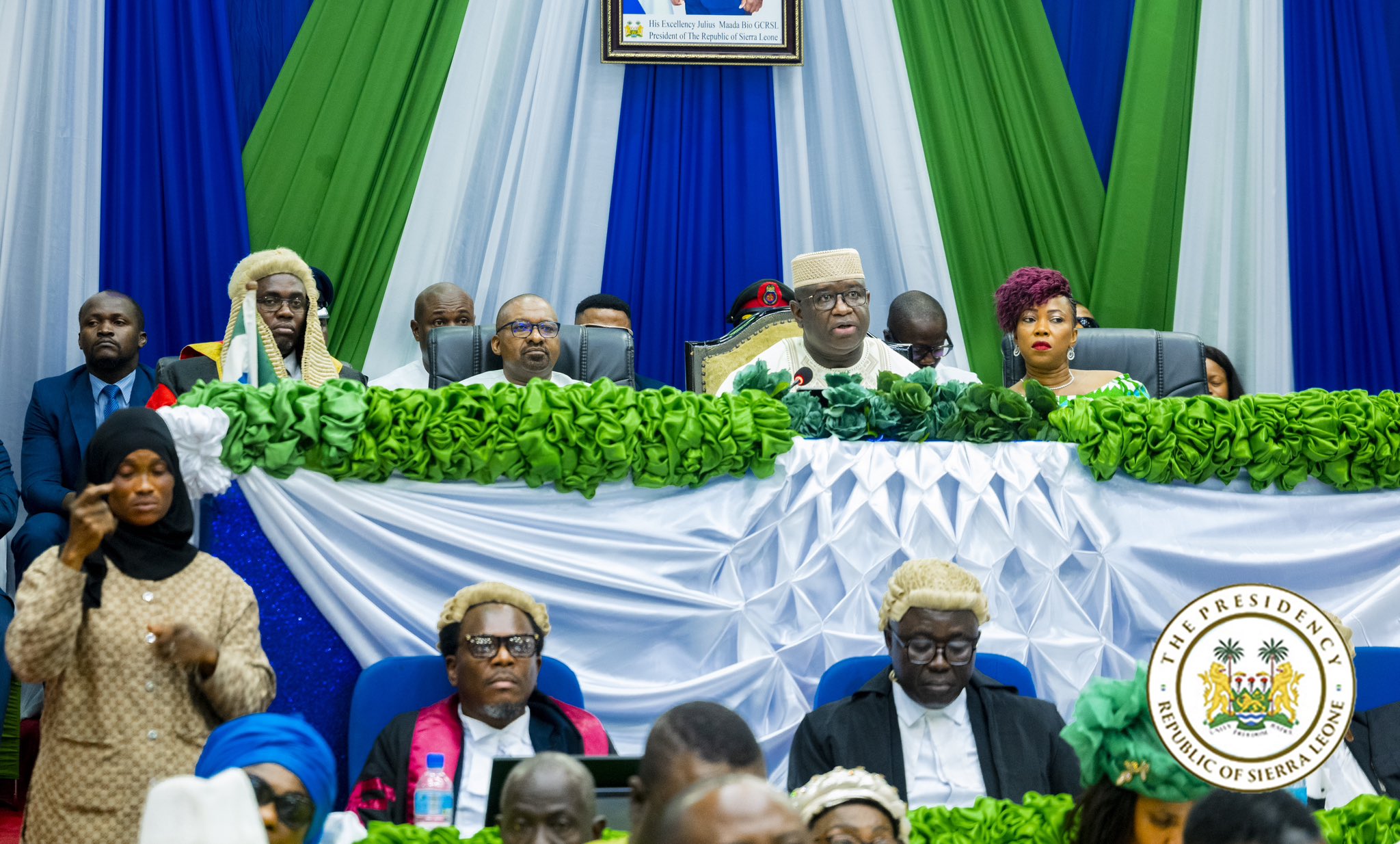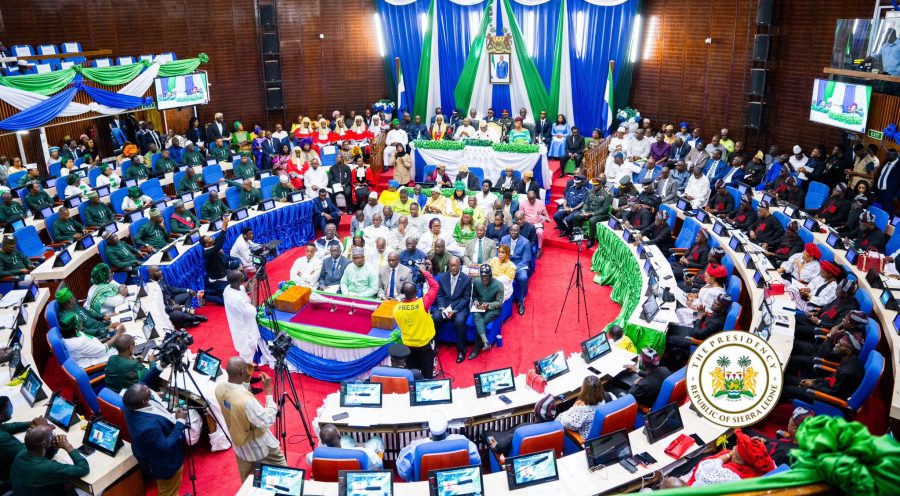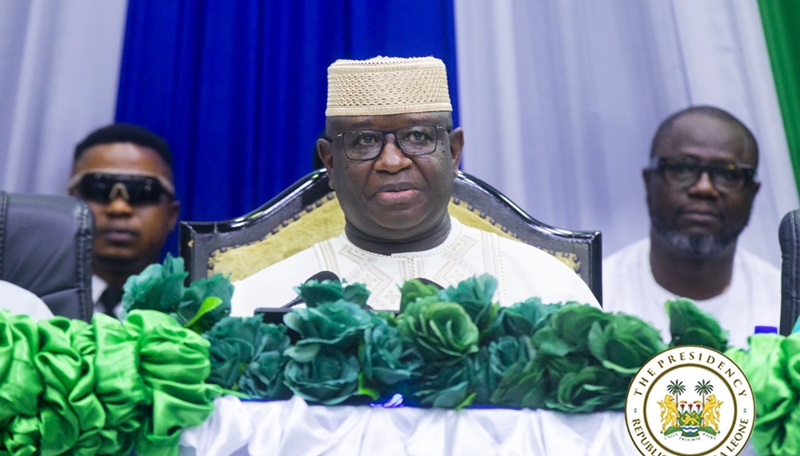President Julius Maada Bio delivered the State Opening address for the Second Session of the Sixth Parliament of Sierra Leone.
Emphasizing unity and governance, he highlighted significant achievements in gender equality, with increased representation of women in Parliament.
He underscored the importance of the Medium-Term National Development Plan (2024-2030) for socio-economic growth, focusing on agriculture, food security, education, healthcare, and job creation.
President Bio delved into various sectors, starting with Agriculture and Food Security, which he described as vital to the nation’s stability and prosperity. “Food scarcity can lead to unrest, as the saying ‘a hungry man is an angry man’ suggests,” he said, highlighting the link between food security and national stability.
He underscored the importance of prioritizing investments in agriculture to mitigate food price volatility, enhance resilience to external shocks and move towards food self-sufficiency. Such investments, he noted, can create jobs, reduce dependency on food imports, boost export earnings from cash crops and drive sustainable economic growth.

He introduced the “FEED SALONE” initiative within the new Medium-Term National Development Plan, envisioning a private sector-led robust food production system. This initiative aims to address constraints like finance, soil fertility, water management, mechanization, quality seed input, infrastructure, and technology and research to boost productivity.
On Human Capital Development, President Bio stressed its importance for Sierra Leone’s resilience and growth. By investing in education, healthcare and nutrition, he said, the foundation for a prosperous and equitable nation is laid. Over the past six years, he said the Government has significantly increased funding for education at all levels, achieving international recognition for reforms and initiatives in education financing, tuition-free access, and gender parity.
He highlighted efforts to expand facilities for tertiary, technical and vocational education, particularly for youth and women, to strengthen workforce development. “Investment in education and skills training fosters innovation, entrepreneurship, and sustainable economic growth,” he stated.

In the health sector, President Bio highlighted Sierra Leone’s commitment to affordable and quality healthcare, aiming for Universal Health Coverage. Over the past five years, partnerships with international organizations have reduced patient costs, and the government has recruited 5,000 healthcare workers, increased the number of doctors, and improved healthcare efficiency through training and new technologies. He mentioned initiatives like the Public-Private Cost Recovery Pilot Scheme and Hospitals-On-Wheels, which have reduced costs, and partnerships such as with Mercy Ships, which provided 5,000 free surgeries. Significant investments have been made in healthcare infrastructure, including new hospitals and upgrades to existing facilities, with improvements in child and maternal health through new programs and vaccines.
President Bio emphasized job creation through the “Youth Employment Scheme,” focusing on education, skills training, and sectoral policies involving youth. His government has resolved over 70% of industrial disputes and introduced new legislation, including the Employment Act 2023, to ensure decent work, pay, and workplace safety.
He also highlighted reforms in the energy sector, expanding infrastructure and tripling generation capacity through renewable and thermal projects. The government has installed over 500 kilometers of transmission lines, improved distribution networks, and integrated solar mini-grids in 45 towns, benefiting households, health facilities, and libraries.
On road infrastructure, President Bio emphasized its importance for economic growth and service delivery. Ongoing and new bridge projects, urban road resurfacing and the Integrated Resilient Urban Mobility Project are enhancing connectivity. Road safety measures include digitized number plates, RFID vehicle licenses, and biometric driver’s licenses, with SLRSA decentralizing services and reactivating the emergency call center.

Addressing the rise in synthetic drug use and addiction, especially among the youth, President Bio declared a National Emergency on Drugs and Substance Abuse. Initiatives include the establishment of a National Task Force, enhancing psychosocial services, skills training for rehabilitated addicts, stricter law enforcement, and advancing mental health care through comprehensive legislation.
In conclusion, President Julius Maada Bio urged Parliamentarians to prioritize the nation’s future over political discord, emphasizing the importance of dedication, collaboration, and good governance. He called for integrity, compassion, and a united effort to build a just, equal, and prosperous Sierra Leone, concluding with a hopeful message and invoking blessings for the Republic of Sierra Leone and its people.












And seated right there is the criminal Clerk of Parliament. If the Opposition had any integrity, they should have walked out in protest. At best, Paran should have resigned, at worst, he should be languishing in jail. But oh “angri-belleh” Salone man stands for nothing.